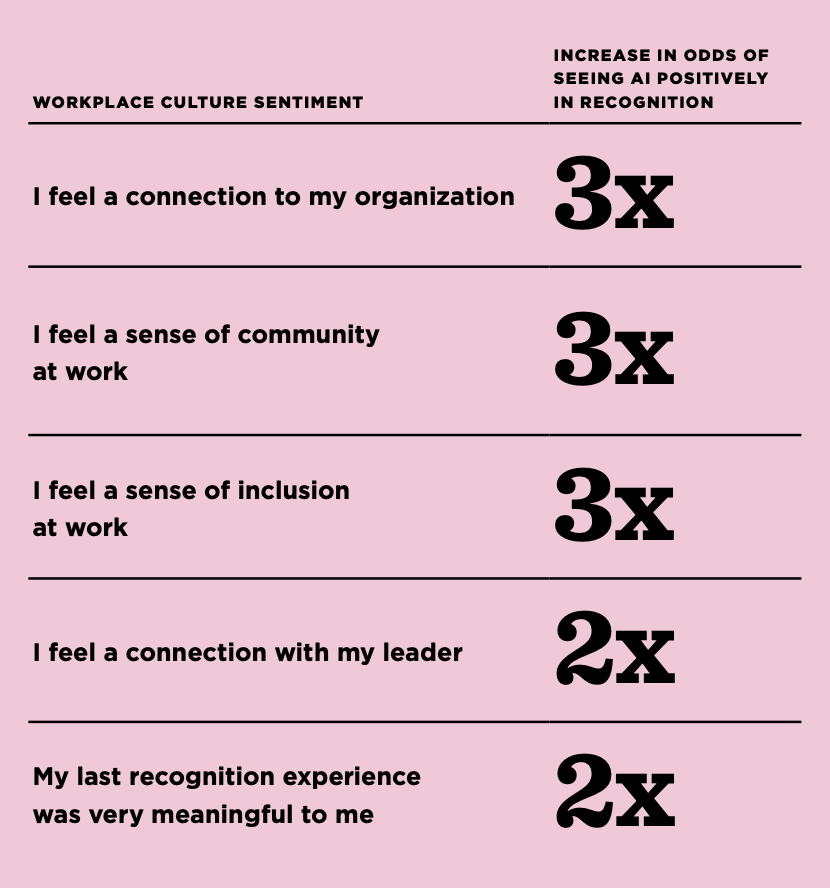
Managers need to use AI "responsibly and appropriately" when sending recognition messages

AI do many things - but should one of them be sending recognition messsages to high-performing employees? According to a employee recognition company O.Tanner - maybe not.
A new survey from O.C. Tanner of more than 2,815 individuals in the United States, Canada, Australia, India, and the United Kingdom to look at how AI is influencing recognition programmes found more than six in 10 employees worldwide were concerned that using artificial intelligence will make recognition at work feel less personal.
It found that 63% of employees are afraid that AI will make recognition less personal, higher than the 55% who believe AI can improve the recognition experience.
"I got to admit, if I sniffed out AI on a congratulatory note, that would probably be a really big turn off…" one of the respondents, an engineer, said in the report.
The findings come in the wake of growing AI use in workplaces — even in recognising employees.
According to the report, 80% of employees said their organisations use technology when recognising coworkers at least some of the time.
Another 45% said they have used an AI tool to help write a recognition message for a coworker.
"Clearly, employees don't want to eliminate technology from their recognition experiences," the report read.
It added that employees want AI and other technologies to be used "appropriately and responsibly."
For employers, this could mean implementing a programme with an AI-powered recognition coach that can help improve a recognition message without making it sound generic.
"It can preserve the giver's original voice and intent while reinforcing recognition best practices, such as timeliness, specificity, and sincerity, and make it easier for people to recognise one another," the report read.
Workplace culture and leadership also have roles to play in how employees view AI in recognition programmes.
"Employees at organisations with thriving cultures are more likely to have a positive view of using AI to craft recognition messages," the report read.

Managers can also influence how employees feel about AI, according to the report, which noted that fully engaged leaders are able to ease employees' fears about AI and other technologies.
In fact, 88% of employees who favour AI use in writing recognition messages believe their leaders understand how they want to be recognised.
"Meaningful relationships with teammates, leaders, and workplace culture alleviate fears around AI and recognition," the report read.
"When employees already feel seen and appreciated for their contributions, they welcome AI as a positive addition to the recognition experience."